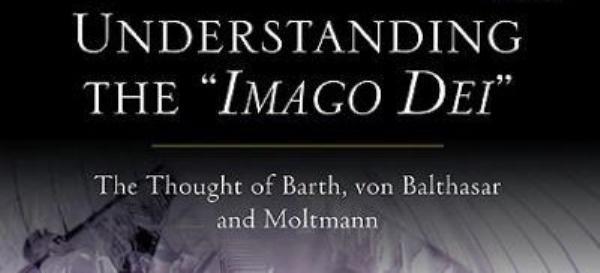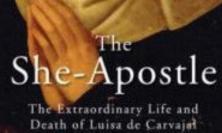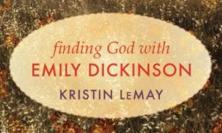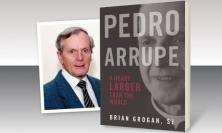Dominic Robinson’s study, based on his doctoral thesis submitted in 2007, is a technical work of theology examining, through the eyes of three prominent, twentieth-century theologians, what it means for humanity to be created in the image of God. An initial chapter sets out his understanding of the ‘Historico-Theological Background’, including reference to the biblical background in Genesis, the treatment of the issue by Augustine and other Fathers of the Church, and then its place in the controversies of the Reformation. He then goes on to explore how this theme is treated in the writings of Karl Barth, Hans Urs von Balthasar and Jürgen Moltmann.
As Robinson’s study unfolds, it becomes clear that he has a wider aim in mind than simply to explain how these theologians interpret this idea. In the first place he believes that this subject includes issues pertinent to all theology and particularly to the current age, namely how to understand human dignity in the presence of God and what is a properly human response to the divine act of salvation in Christ. Secondly, he believes that each of these theologians has a distinctive contribution to make to the understanding of these issues. And thirdly, from the dialogue between them and their work arises the possibility of a genuinely ecumenical convergence on these important matters of theology.
The book’s cover is cleverly suggestive of its content. A picture of commuters at a tube station may itself reflect a challenge to our understanding of human dignity. But equally important is the fact that these commuters are travelling up and down on escalators, for in Robinson’s study it becomes clear that there is a twofold movement involved in the recovering of human dignity. The first is emphasised by the great Swiss Reformed theologian, Karl Barth with his insistence on starting with God’s revelation in Christ. It is from this descending movement, in which God in Christ affirms human beings as part of his creation, taking upon himself the burden of judgment and sin before redeeming it through his suffering death on the Cross (Barth’s celebrated re-interpretation of the Doctrine of Election), that we begin to understand what humanity is, what it means to be made in the image of God.
But while Barth is right to affirm a Christocentric approach to understanding human dignity, Robinson believes that his interpretation of Augustine and his rejection of natural theology leaves him unable to account fully for a proper human response; for if all things have already been done in Christ then what is there left for human beings to do? According to Robinson, this is where von Balthasar comes in. He reaffirms Barth’s Christocentric approach but has a different interpretation of Augustine, maintaining that the divine image is not ‘lost’ but rather ‘corrupted’ in the Fall and so capable of being redeemed and restored. Robinson also brings out the role of analogy in von Balthasar’s work, in particular the dispute with Barth over the ‘analogy of being’. He shows how von Balthasar accepts Barth’s proper focus on the revealed Word of God in Christ, but allies that with an emphasis on how this must affect not just the understanding but also human being, so as to enable that ascending movement in which humanity recovers its divine image and comes to share in the life of Christ.
The third theologian to be explored is Moltmann. If what has been offered appears thus far a dialogue between Barth and von Balthasar, in which a Protestant emphasis on justification is countered by Catholic emphasis on sanctification, Robinson suggests that in Moltmann’s work we find a Reformed theologian equally concerned to find a role for human response to divine grace, to participate in that ascending movement back to God. Robinson finds much of value in Moltmann’s exploration how Christian theology may speak to a world increasingly concerned with creation and the environment. But ultimately he believes that Moltmann’s emphasis upon Jesus as ‘friend’ and God’s solidarity with human suffering leads to a diminution of God’s transcendence, that sense of what it means for God to come down in Christ to redeem and restore his creation.
Robinson’s conclusion is that it is von Balthasar’s theology which offers the best way to hold together that twofold movement of descent from and ascent back to God, both of which are crucial to a recovery of human dignity. He goes on to show how this theme has influenced current Catholic thinking, particularly through von Balthasar’s friend and colleague, Cardinal Ratzinger, now Pope Benedict XVI. At the same time he also wants to affirm that the interest in this issue arises from a genuinely ecumenical conversation to which these two notable Protestant theologians, Barth and Moltmann have made their own distinctive contributions.
My own reflection, as a Methodist who has studied both Barth and von Balthasar in some depth, is to welcome that ecumenical conversation and re-awakening of interest in human dignity. I recognise much of Robinson’s analysis of the relationship between Barth and von Balthasar and its creative impact on both theologians, though my own studies would suggest that their dispute over analogy is at least as important as their reading of Augustine. My sense is that his chapter dealing with Moltmann suffers slightly by comparison because there is not the same sense of dialogue and relationship as there is between the other two, for all that Moltmann serves as a useful counter-balance in the development of Robinson’s own thesis. I also wonder whether Barth himself might offer his own challenge in response to what (from a Protestant perspective at least) still appears a highly ecclesial reading of the human response to divine grace. But in drawing ecumenical attention to an important issue which goes right to the heart of these three great twentieth century theologians, Robinson’s study has much to commend it and deserves to be widely read.
The reviewer, Revd. Dr. Stephen Wigley is a Methodist minister and Chair of the Wales Synod.
![]() Find this book on Ashgate's web site
Find this book on Ashgate's web site
![]() Shop for this book on Amazon, giving a 5% cut to the Jesuit Refugee Service, UK
Shop for this book on Amazon, giving a 5% cut to the Jesuit Refugee Service, UK






